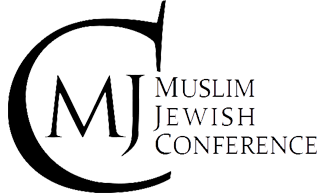The Muslim Jewish Conference (MJC) is an NGO which holds annual conferences. This July I was one of 100 Muslims and Jews from 39 countries to take part in it.
I went to Sarajevo with no particular expectations, in fact I passed on the opportunity to be at MJC 2012 in Bratislava when I decided not to apply. I had an issue with the name of the NGO.
The name MJC hints that Jews and Muslims are equivalent. On their website, MJC talks about providing an interfaith platform. Well, I frequently argue that Jews are not a religious group comparable to Muslims. I felt that any conference that ignores this difference sets itself in the wrong direction from the get go.
Then, some people I respect came back from Bratislava and told me to get a grip on myself, that it’s a chance to meet Jews and Muslims from all over the world, that I should just apply, so I did.
The first thing I noticed at MJC was that I couldn’t tell who was Jewish and who was Muslim. In Israel it’s much more easy, but in Sarajevo I came face to face with people from societies I usually don’t have contact with so my instincts didn’t apply so well.
The second thing to notice was that Muslims from different countries and cultural backgrounds think very differently about various issues, related or unrelated to religion. My experience with Muslim Arab Palestinians is different. Here I usually find that people hold on to similar notions, and rarely break lines with the rest.
The immediate question which comes to mind, recalling that people’s attitudes differ from country to country, was whether or not there was a conflict between Muslims and Jews at all.
Creating an NGO called MJC hints that there is a conflict, and including a committee for “Conflict Transformation” at MJC hints the same, but organizers and participants found it difficult to point to any obvious conflict between Jews and Muslims per se.
If there is a conflict to treat, we should be able to point it out. Here’s how I see the conflict:
First, it’s very important to point out that Jews are not a religious group, because if other people don’t get that, then they won’t address Jews, or interpret Jews, or interact with Jews properly.
For example, at MJC so many Muslims asked me so many questions about Judaism that I just had to tell them I was atheist. The Bible doesn’t define my Jewish identity nor the way I live my life. Their whole approach to me was misguided. I felt we had to go back to basics just to continue talking.
Second, it’s important to understand that Judaism as a “religion” differs from Islam as a religion in that Judaism is for the Jews and Islam is for everyone… Islam is a religion and it aims to spread to all nations. Judaism is not a religion and it aims to stay particular to the Jewish people.
The result is what you’d expect with 23% of the world’s population being Muslim and 0.23% Jewish. That’s about 1.6 billion Muslims and 16 million Jews, give or take.
So, if Jews are so few, and if their “religion” is only for them, is there a conflict from the Muslim perspective?
I read many parts of the Quran, and I recommend you do the same. Some parts view Jews favorably, some parts don’t. On the whole I found it disturbing, but see for yourself. Gladly, I found that many Muslims at MJC were more familiar with the positive quotes in the Quran and less familiar with the negative ones (which apprehensive Jews like myself are better familiar with).
This relates back to how people from different societies behave differently, as mentioned above. I don’t suppose it is religion itself which dictates social norms and attitudes, because then more Muslims would think more along the same lines. I suppose it is the society which shapes its own social norms and attitudes, as it is the same society which later interprets religious texts according to its taste and needs.
The most important lesson I derive from this is that the Bible and the Quran are misleading. They are misleading because people assume these texts guide us, when in fact they don’t. The Muslims and Jews I met at MJC resembled their home communities more than they resembled each other. It was easier to place them based on their country of origin rather than on the basis of their faith (or lack of faith).
So, if there is a conflict between some Jews and some Muslims, I would suggest not to tag it as a religious conflict right away. Perhaps the conflict is between their societies, and religion just covers that up.
It is an important distinction to make, because if the conflict is not based on religion, then interfaith dialogue is not the cure for it.
Not that there’s anything wrong with dialogue.
– Yovav Kalifon; this blog was originally published here.
Photo Courtesy: Daniel Shaked
MJC does not support any political agenda and would like to emphasize that these posts reflect personal views of participants that wrote about their individual experience at an MJC conference.
